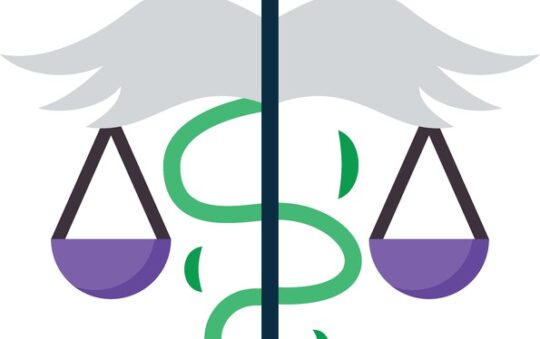The difficulty with legal language is common among individuals facing legal documents or court cases for the first time. Many people encounter complex terms that may seem intimidating at first glance. However, by learning simple strategies, you can translate this complicated language into clear English and feel confident when dealing with legal matters.
Why Is Legal Language Hard for Many People to Grasp?
Complex Vocabulary and Latin Terms
Many legal documents contain terminology derived from Latin or Old English. Phrases such as “habeas corpus,” meaning the right to challenge unlawful imprisonment, or “mens rea,” meaning criminal intent, can confuse modern readers. These terms are rarely found in common English and must be defined carefully to ensure a clear meaning.
Even simple documents like leases or contracts often introduce words such as plaintiff, defendant, indemnify, or liability. Without appropriate explanations, these unfamiliar words create confusion. Being mindful of this barrier allows you to approach legal reading with patience and preparedness.
Long Sentences and Complex Structure
Legal writing frequently uses long, complex sentences full of commas, semicolons, or clauses. This sentence style aims to cover every possibility and reduce ambiguity. Lawyers attempt maximum clarity by including extensive details, usually making sentences lengthy and harder to follow.
A single sentence in a contract or judgment can extend several lines, containing multiple points. Breaking down these sentences into smaller segments helps readers comprehend better and faster. Continued practice with structured reading techniques helps overcome difficulties caused by legal sentence structure.
Formal Writing Style
The use of formal language creates additional barriers in legal documents. Lawyers adhere to specific formats and styles recognized officially by courts and legal professionals. This formality reduces casual expressions, using professional, precise language.
For readers accustomed to casual conversations, this style may seem stiff or challenging. Learning to see past the formality to the content beneath helps the reader grasp topics clearly. Regular exposure to legal documents over time will make formal language easier to read and interpret.
Tools to Simplify Complicated Legal Terms and Sentences
Dictionaries Designed for Legal Terminology
Equipping yourself with a specialized dictionary provides assistance in decoding difficult legal terms. Many online and offline dictionaries specifically designed for law-related terms explain concepts in common English. Using these resources regularly builds familiarity with common terms found in legal documents.
-
Black’s Law Dictionary – Offers clear definitions of legal terms.
-
Nolo’s Plain-English Law Dictionary – Explains complex words in everyday language.
-
Law.com Dictionary – Provides legal terms used widely in courts or documents.
Online Translation Tools and Websites
Legal translation websites or applications are useful tools for interpreting complicated legal language. Websites such as LegalZoom, FindLaw, or Cornell Law explain complicated subjects clearly in plain English. Such free online services simplify your legal document reading experience.
These websites usually provide practical examples or straightforward paragraphs explaining complicated legal principles. Frequent reference to reliable online resources enhances comprehension and confidence when confronted with legal documents.
Plain Language Legal Documents and Guides
Some organizations publish simplified versions of statutes, contracts, or other documents to assist public understanding. Seeking these materials helps familiarize users with primary concepts that original, complicated versions may obscure. Plain language guides assist in bridging the gap created by formal legal style.
Studying simplified legal materials regularly builds confidence. Users become more comfortable recognizing and interpreting common legal ideas. Always rely on trustworthy sources ensuring credibility and accuracy of simplified content.
Effective Strategies to Decode Legal Language Independently
Break Down Long and Difficult Sentences into Smaller Parts
A simple technique for better readability involves breaking long sentences into shorter ones. After splitting complicated sentences, analyze each segment separately. Identify subjects, actions, objects, or conditions clearly to reveal the sentence’s intended meaning piece by piece.
Careful breakdown of sentence structure also exposes significant parts and critical points that the document tries to communicate. This approach is particularly useful when deciphering complex legal texts, such as those involving aviation accidents. Enhanced clarity results from patiently dissecting difficult legal language step by step, allowing individuals to better understand their need for legal help for aviation accidents in Louisiana.
Focus Mainly on Key Legal Concepts
When facing pages of challenging sentences, focus initially on the essential points. Important facts or main objectives usually stand out clearly despite the document’s complexity. Once key points are understood, adding details surrounding those points becomes simpler.
Highlighting critical concepts and conditions mentioned in any legal paper allows you to prioritize comprehension effectively. Once major issues have clarity, secondary elements naturally fit together easily.
Consult a Legal Professional Whenever Necessary
If you face serious legal issues, professional assistance provides clear advantages. Seeking guidance from attorneys ensures accurate interpretations focused on your circumstances. Lawyers help clarify your rights, responsibilities, obligations, or complexities unique to your situation. Even short consultations may provide clarity, enabling you to deal comfortably with legal language or documentation.
When facing severe disputes, especially those involving accidents or injuries, consulting experienced personal injury attorneys in Louisiana can be particularly beneficial. Professional guidance effectively complements self-study efforts, particularly during complicated contracts.
How Can Legal Knowledge Be Enhanced with Examples?
Follow Illustrative Court Cases and Examples Online
Real-life cases provide practical lessons that are valuable for interpreting complex legal terms. Most court decisions, judgments, or filings become publicly available online. Studying detailed outcomes can clarify difficult language concepts through examples. Reading legal interpretations inside court documents clarifies principles that can initially be confusing in abstract definitions.
Regularly checking free court websites or legal resources helps build practical examples of various terms and concepts naturally. When exploring cases involving maritime issues, consulting trusted Louisiana maritime accident lawyers can provide additional insights and guidance.
Analyze Common Legal Scenarios Periodically
Analyzing common legal scenarios helps users identify repeated issues or concepts quickly. Familiarity with ordinary events like tenancy issues, employment contracts, or basic rights builds confidence in reading complex related legal passages. Regular practice supports gradual retention without needing continuous dictionary referencing.
-
Employment Agreements – Familiarizes with terms like termination clauses and non-compete agreements commonly found in contracts.
-
Lease and Tenancy Contracts – Identify frequently used terms related to responsibilities, durations, deposits, or dispute settlements.
-
Consumer Rights Documents – Provides basics such as warranty terms, product liability, or dispute resolution processes.
Final Thoughts
Decoding legal jargon requires patience along with effective techniques and supportive resources. Employing specialized dictionaries, breaking sentences down clearly, studying real examples, and seeking expert advice makes legal language easy to comprehend. Regularly practicing these methods develops your skills and boosts confidence significantly whenever legal language appears unclear.



